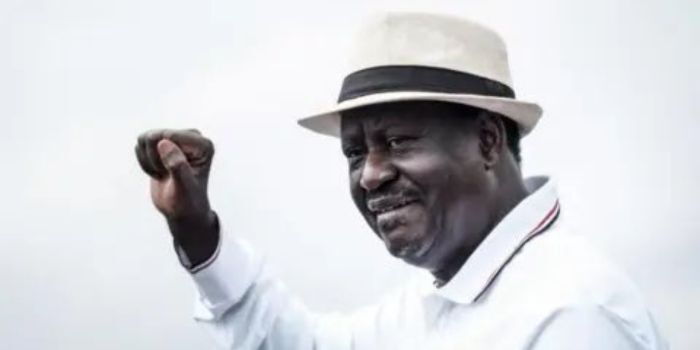Former Prime Minister Raila Odinga is set to receive a full State Funeral today at the Nyayo National Stadium, where Kenyans, government officials, and foreign dignitaries will have the chance to mourn and celebrate him.
In the State Funeral, six key things are expected to happen in this formal and highly ceremonial event, organized and funded by the Government of Kenya.
The first key element is Raila’s body lying in state. This refers to the public display of the body of a deceased national leader or prominent public figure, typically before their funeral.
It allows members of the public to pay their last respects. The body is usually placed in a coffin, often draped with the national flag, and guarded ceremonially, usually by military or state officers, in a significant government building such as a parliament, presidential palace, or court of honor.
In Kenya, the exercise of the body of a prominent state official lying in state is done at the Parliament Buildings. Raila’s body lay in state on Friday, October 17. According to the funeral program, his body was to lie in state on Thursday, October 16, but logistical challenges that arose during the process of repatriating his body from India delayed this.
Next up is a military procession, whereby military officials will be expected to escort Raila’s body into the stadium. Also, the soldiers will be expected to be the pallbearers, carrying Raila’s coffin during the ceremony.
While it has not yet been clearly established, Raila may be accorded a gun salute or firing of rifles as a final tribute by the military.
Thirdly, the State Funeral will encompass national mourning, which is currently ongoing. While confirming news of Raila’s death, President William Ruto announced seven days of national mourning.
During the mourning period, all flags will fly at half-mast at State House and all Kenyan diplomatic missions, public buildings and public grounds, all military bases, posts, and stations on all naval vessels in any territory that is considered the Republic of Kenya.
Also, Ruto directed that state officials remove the flags on their vehicles as a mark of respect towards the former Prime Minister.
The fourth element of the State Funeral is the formal church service, an important process in the overall exercise. In Raila’s State Funeral, the Anglican Church of Kenya was tasked with conducting the service.
According to the timetable, the service was to start at 9am and run for strictly two hours till 11am.
Fifth would be an exercise set aside for the conduction of religious and cultural elements, which is expected to run concurrently with the church service. The mix of religion and culture will happen in accordance with Raila’s Anglican and Luo inclinations.
After the service, the sixth element of State control is expected to take place. In this exercise, the government will assume full control of the funeral. This means all structural, protocol, and dignitary arrangements will be under the State.
In the exercise, which is expected to take roughly one hour, Raila’s family, Ruto, Deputy President Kithure Kindiki, and select foreign dignitaries are expected to give their speeches.
The State Funeral is expected to end at 12 noon, where Kenyans will be accorded the chance to view Raila’s body, for as long as time will allow.
Once this is done, the body will be taken to Raila’s Karen residence and spend the night before departing for his Bondo ancestral home. By Walter Ngano, Kenyans.co.ke






